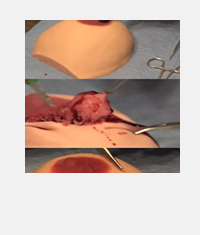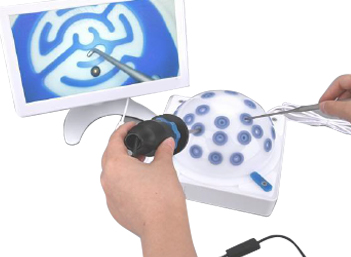📞Customer Service: +86 13248368268 📧servicecenter@suzhoufrank.com one year replacement and warranty!
Endoscopy Training Simulator: Expert Insights on Modern Medical Simulation
Enhance your medical skills with an endoscopy training simulator, offering realistic scenarios and interactive feedback for safe, effective endoscopic procedures.
ENDOSCOPY TRAINING SIMULATOR: ENHANCE MEDICAL SKILLS
By Dr. Li Wei, MD, PhD – Senior Gastroenterologist & Endoscopy Training Specialist Reviewed by Chen Qirui, MSc – Medical Simulator Researcher & Endoscopy Imaging Engineer
11/18/20251 min read
Endoscopy simulator | medical simulator | Endoscopy training simulator
Endoscopy is a cornerstone of modern healthcare, enabling minimally invasive exploration of internal organs. Like all precision medical procedures, competency requires structured training—this is where a professional endoscopy training simulator becomes indispensable. These medical simulators give clinicians a controlled, risk-free environment to develop hands-on skills essential for safe and accurate endoscopic practice.
The Importance of Endoscopy Training
Professional endoscopy training ensures that healthcare providers can perform procedures with confidence and precision. With an endoscopy training simulator, trainees can repeatedly practice the delicate maneuvers involved in diagnostic and therapeutic endoscopy. This ultimately strengthens procedural accuracy and elevates patient outcomes.
How Endoscopy Training Simulators Work
Modern simulators recreate authentic clinical scenarios, helping practitioners understand the tactile and visual feedback of real instruments. Using lifelike anatomical structures, an endoscopy simulator can reproduce procedures such as gastroscopy or Ultrasound Bronchoscopy. These systems train users to apply proper pressure, navigate tight spaces, and adapt to anatomical variations.
Key Features of Today’s Medical Simulators
High-performance endoscopy simulators integrate multiple training features, including:
Realistic Anatomy: High-fidelity organ models replicate real human anatomy.
Interactive Feedback: Real-time guidance helps users refine technique instantly.
Multiple Scenarios: Covers training from basic navigation to advanced therapeutic procedures.
Performance Tracking: Built-in metrics let trainees evaluate progress and pinpoint improvement areas.
Benefits of Medical Simulation Training
Medical simulation offers a strategic, high-value training pathway:
Risk-Free Practice: Learners build confidence without exposing patients to risk.
Faster Skill Development: Repeated practice sharpens complex endoscopic skills.
Instant Feedback Loop: Immediate corrections reinforce proper techniques.
Cost Efficiency: Reduces clinical errors and boosts long-term operational efficiency.
The Future of Endoscopy Simulation
With emerging VR and AR technologies, the next generation of endoscopy training simulators will deliver even more immersive and data-driven learning environments. These innovations will continue elevating medical simulation and strengthening clinical training pipelines worldwide.
About the Authors
Dr. Li Wei, MD, PhD
Senior Consultant Gastroenterologist with 15+ years of clinical experience in diagnostic and therapeutic endoscopy. Dr. Li leads multiple hospital-based endoscopy training programs and is recognized for advancing simulation-based education in Asia.
Chen Qirui, MSc
Medical Physicist & Imaging Algorithm Engineer specializing in endoscopy imaging, medical simulator design, and minimally invasive procedure training systems. Qirui contributes to research on improving medical simulator accuracy and enhancing training realism.





© 2025. All rights reserved.
About Us
Introduction
Development
Cooperation
Service
Main Products
Medical Grade Monitor
No 15, Jinyang road KunshanSuzhou, Jiangsu, China
